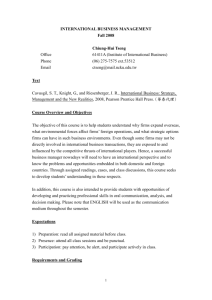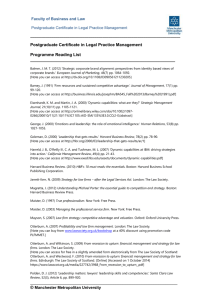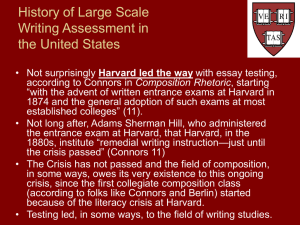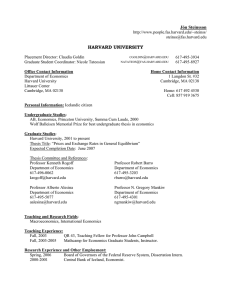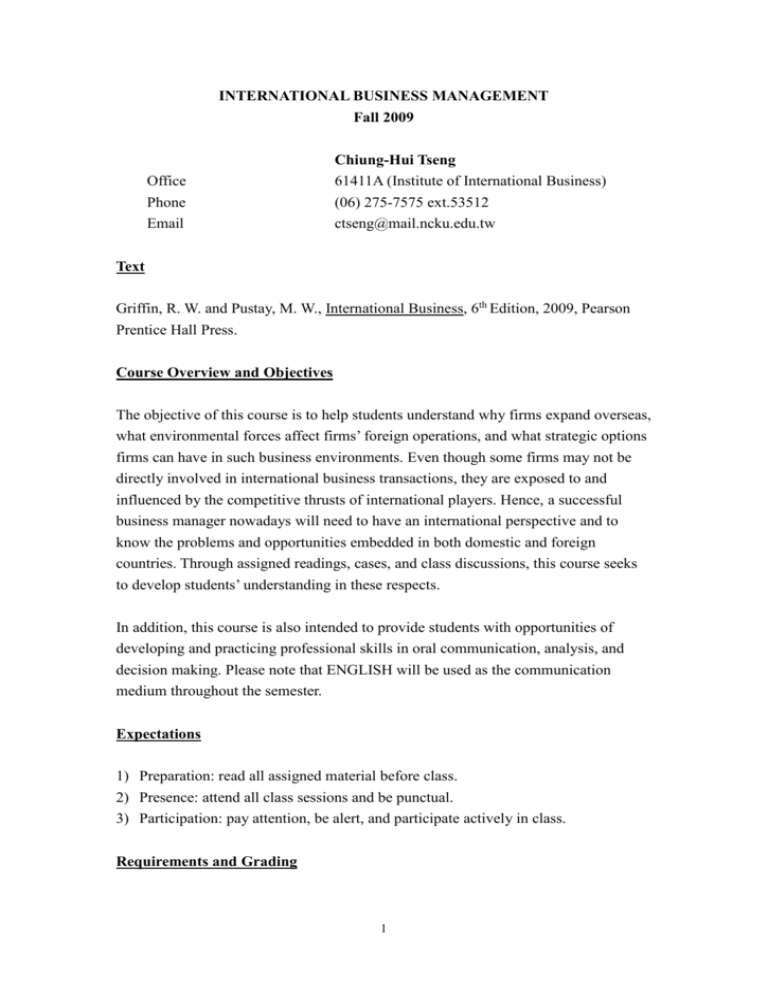
INTERNATIONAL BUSINESS MANAGEMENT
Fall 2009
Office
Phone
Email
Chiung-Hui Tseng
61411A (Institute of International Business)
(06) 275-7575 ext.53512
ctseng@mail.ncku.edu.tw
Text
Griffin, R. W. and Pustay, M. W., International Business, 6th Edition, 2009, Pearson
Prentice Hall Press.
Course Overview and Objectives
The objective of this course is to help students understand why firms expand overseas,
what environmental forces affect firms’ foreign operations, and what strategic options
firms can have in such business environments. Even though some firms may not be
directly involved in international business transactions, they are exposed to and
influenced by the competitive thrusts of international players. Hence, a successful
business manager nowadays will need to have an international perspective and to
know the problems and opportunities embedded in both domestic and foreign
countries. Through assigned readings, cases, and class discussions, this course seeks
to develop students’ understanding in these respects.
In addition, this course is also intended to provide students with opportunities of
developing and practicing professional skills in oral communication, analysis, and
decision making. Please note that ENGLISH will be used as the communication
medium throughout the semester.
Expectations
1) Preparation: read all assigned material before class.
2) Presence: attend all class sessions and be punctual.
3) Participation: pay attention, be alert, and participate actively in class.
Requirements and Grading
1
Group Activities:
Chapter Presentation and Discussion (90 minutes)
Closing case Presentation and Discussion (30 minutes)
Individual Activities:
Closed Book Exam
Class participation
40%
10%
20%
30%
Key grading criteria for oral presentation are as below:
• Positive and enthusiastic attitude; never read along notes
• Good voice, eye contact, and gesture
•
•
•
•
•
•
Relate to the audience; be interesting
Be clear on the objective and key points
Be organized and stay in time limit
Good use of visual aids
Meaningful wording, correct spelling and grammar
Proper dressing
Note: Everyone in the team will receive the same grade for group activities. Every
member must contribute fully from the beginning until the end. If a member does not
work hard, fellow members should feel free to “fire” him/her at anytime and notify
the instructor. The member will then receive no grade on the project. Remember that
team spirit is the key to your group’s success.
Academic Dishonesty
Cheating on exams (i.e. when someone brings information into an examination or
looks at someone else’s test paper) will result in an automatic fail for the exam, if not
for the course.
2
Course Schedule
Week
Topic
1 (09/18/09)
2 (09/25/09)
3 (10/02/09)*
4 (10/09/09)
5 (10/16/09)
6 (10/23/09)*
7 (10/30/09)*
8 (11/06/09)*
9 (11/13/09)*
10 (11/20/09)*
11 (11/27/09)
Course Overview
Ch.1 An Overview of International Business
Ch.2 Global Marketplaces and Business Centers
Ch.3 Legal, Technological, Accounting, and Political
Environments
No Class
No Class
Ch.4 The Role of Culture
Ghemawat, P. (2001) Distance Still Matters: The Hard Reality
of Global Expansion, Harvard Business Review,
79(8):137-147.
Ch.5 Ethics and Social Responsibility in International Business
Ch.5 Ethics and Social Responsibility in International Business
Ch.6 International Trade and Investment
Ch.7 The International Monetary System and the Balance of
Payments
Ch.9 Formulation of National Trade Policies
Ch.9 Formulation of National Trade Policies
Ch.10 International Cooperation Among Nations
Ch.11 International Strategic Management
Ghemawat, P. (2007) Managing Differences: The Central
Challenge of Global Strategy, Harvard Business Review,
85(3):59-68.
Ch.12 Strategies for Analyzing and Entering Foreign Markets
Tseng, C.-H. (2007) Exploring Location-Specific Assets and
Exploiting Firm-Specific Advantages: An Integrative
Perspective on Foreign Ownership Decisions, Canadian
12 (12/04/09)
13 (12/11/09)
14 (12/18/09)
Journal of Administrative Sciences, 24(2): 120-134.
Ch.13 International Strategic Alliances
Arino, A. and J.J. Reuer (2004) Designing and Renegotiating
Strategic Alliance Contracts, Academy of Management
Executive, 18(3): 37-48.
Ch.14 International Organization Design and Control
Ch.15 Leadership and Employee Behavior in International
Business
3
Brett, J., Behfar, K., and Kern, M.C. (2006) Managing
15 (12/25/09)
16 (01/01/10)
17 (01/08/10)
18 (01/15/10)
Multicultural Teams, Harvard Business Review, 84(11):
84-91.
Ch.16 International Marketing
Holt, D.B., Quelch, J.A., and Taylor, E.L. (2004) How Global
Brands Compete, Harvard Business Review, 82(9): 68-75.
Holiday
Exam (Study questions will be distributed on 12/25.)
Exam Grading Questions and Answers
Note: Class on the weeks with an asterisk behind starts 8:10am and end 12pm.
4


